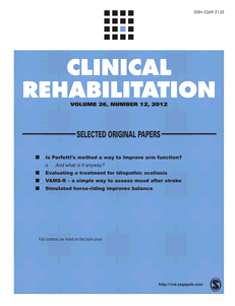
Physical Therapy & Rehab
Active neck exercise program feasible and safe treatment method for cervical dystonia
This report has been verified
by one or more authors of the
original publication.
Clin Rehabil. 2013 Mar;27(3):226-35. doi: 10.1177/0269215512456221. Epub 2012 Aug 17
20 patients with idiopathic cervical dystonia were randomized to undergo a 12 week program of active neck exercises and relaxation or relaxation alone, to determine the efficacy of physiotherapy in treating condition. Following evaluations over 16 weeks, the results indicated that there were no significant differences in any of the outcome measures between the two groups. However, it should be noted that the improvement in the Toronto Western Spasmodic Torticollis Rating Scale and quality of life scores was greater in the exercise group. There were also no adverse events reported by any patients.
Unlock the full article
Get unlimited access to OrthoEvidence with a free trial
Start TrialCritical appraisals of the latest, high-impact randomized controlled trials and systematic reviews in orthopaedics
Access to OrthoEvidence podcast content, including collaborations with the Journal of Bone and Joint Surgery, interviews with internationally recognized surgeons, and roundtable discussions on orthopaedic news and topics
Subscription to The Pulse, a twice-weekly evidence-based newsletter designed to help you make better clinical decisions
Exclusive access to original content articles, including in-house systematic reviews, and articles on health research methods and hot orthopaedic topics
Or continue reading this full article
Register Now

Subscribe to "The Pulse"
Evidence-Based Orthopaedics direct to your inbox.





































